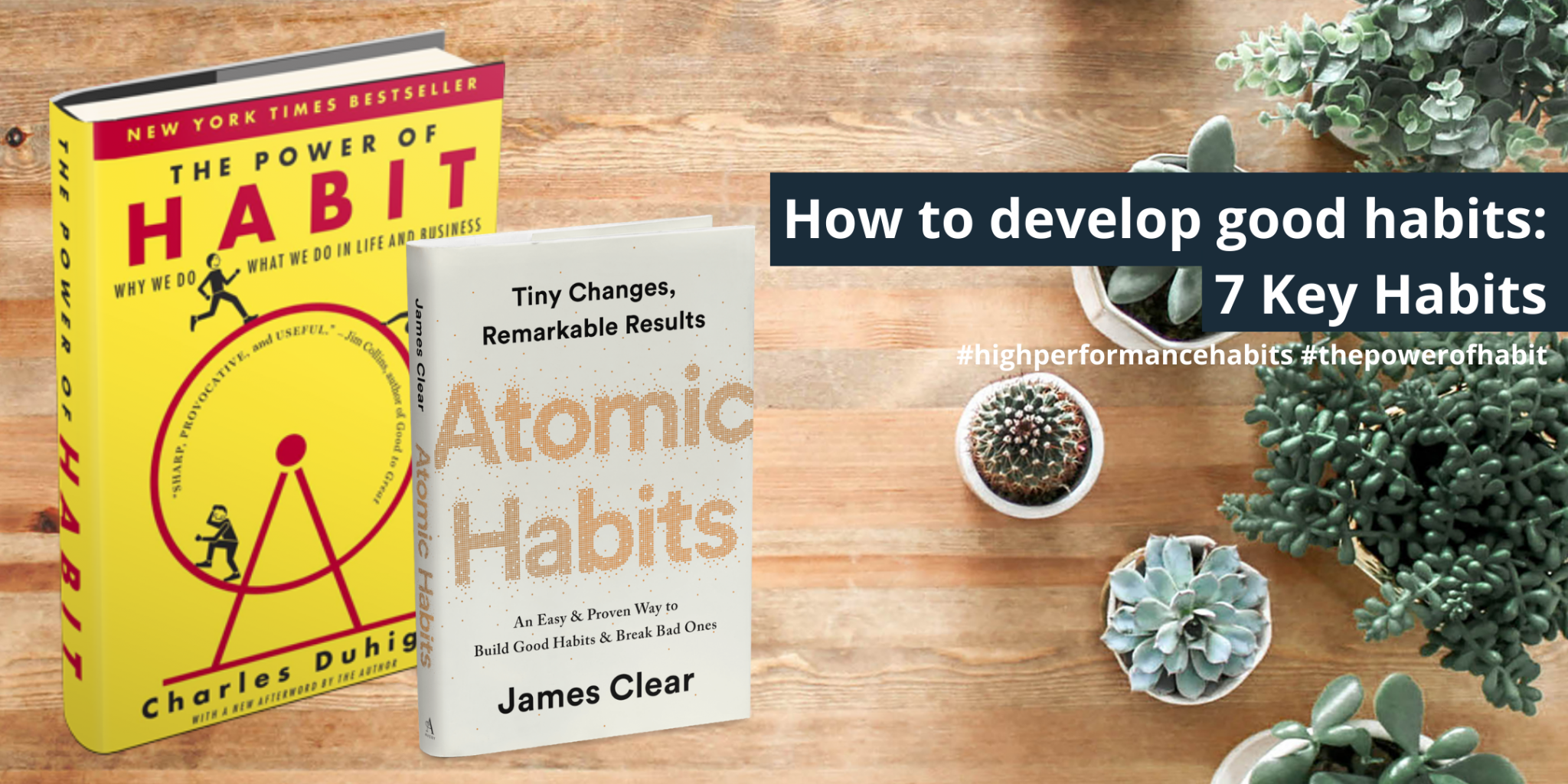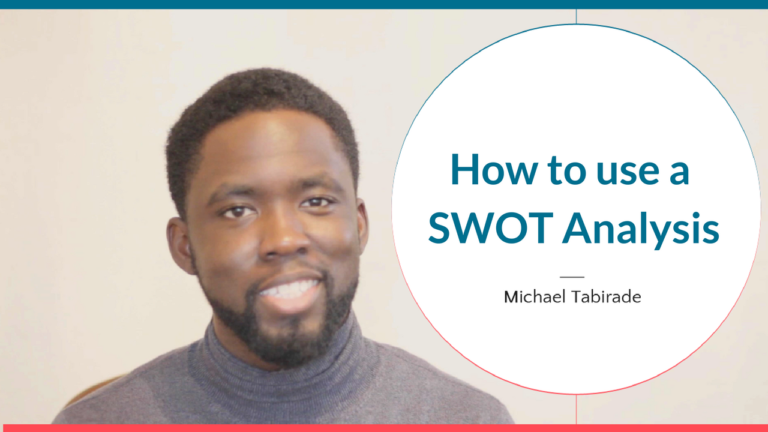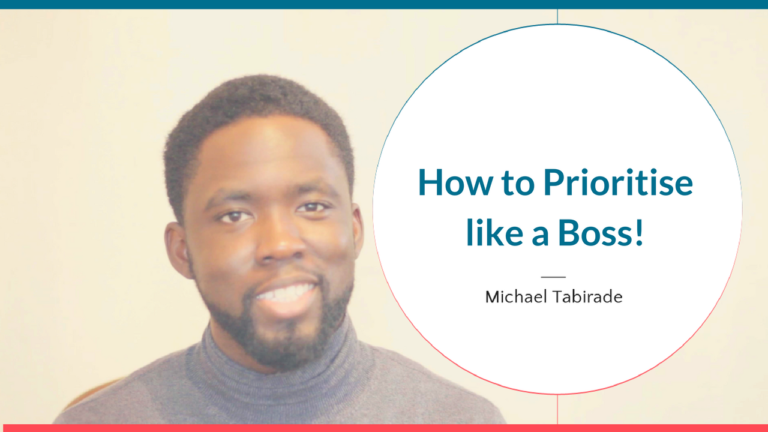How to develop good habits
It was Aristotle who once said, “we are what we repeatedly do”. And so with that in mind in today’s article, I want to talk about how you can form new habits, especially to your advantage.
How long is a piece of string?
How long do you think it takes to form a habit?
21 days, 90 days, 365 days? In the study How are habits formed: Modelling habit formation in the real world, it states that it takes anywhere between 18 days to 254 days to form a new habit. But on average, it takes most people 66 days. That doesn’t mean to say that you should be thinking about forming habits in 66 days time. You should rather have a “no matter what it takes” attitude.
If you are truly aligned or passionate about something, you are less likely to think about how long it would take to form a new habit. Habits are formed from a collection of our experiences, and they are heavily dependent on things known as scripts in psychology. Scripts are a sequence of expected behaviours for a given situation, and we can fall to “default” scripts once a type of situation arises. As stated before, we are what we repeatedly do.
The Power of Habit
In the fantastic book The Power of Habit by Charles Duhigg, he mentions a 2006 study that talks about the actions that we do day to day are actually heavily attributed to habits. He says that 40% of the things that we do are habits as opposed to decisions. So really habits have a huge influence in terms of what we actually do, whether we realize it or not.
Understanding habits from a biological and neurocognitive standpoint, reveals that habits are being formed via our neural networks. There are core habits, wired deeply within our basal ganglia – the depths of our brains. As more habits are formed they become part of the ever encompassing grey matter.
New habits, when “engrained” enough, form new neural pathways that “hijack” former parts of the neural network. This is how we overcome an old habit and why it is difficult to overcome one. Another great and current book to read is Atomic Habits, by James Clear, who was inspired by the Power of Habit.
Habits work on a 4-part System
Charles Duhigg’s book, he talks about cues, routines, rewards and habit loops.
Cues act as the trigger that sets off the routine of enacting a particular habit (like a script). The cue also reminds the brain of the reward based on a previous experience. This highlights the pleasure centres or cravings in you, which in turn create the habit loop.
For example, when you crave sweets or chocolate, you begin to encourage and develop and deepen those craving neurological activities.
Knowing the nature of cues, routines and rewards allows you to create self-awareness and change how to respond to specific cues. This inturn allows you to stop or change a habit loop. When I originally read the Power of Habit back in 2016, it completely transformed the way I think about things.
Good habit #01
Saying all this, I couldn’t really talk about the science of habit without really talking about some habits that I think may benefit you. So here’s the first one:
Get into the habit of paying off your debts.
I’m not assuming that you necessarily have debts, but I am assuming that some of you reading this do. It may not necessarily be a debt, but it may be some sort of bad money activity that you do that is preventing you from growing wealth or being great.
I remember when I was in a position where I had invested so much money into mentors and training and all these different things. I had spent thousands, tens of thousands on “fake gurus” and realized that I was left with not much. Eventually learning this, I had to be really disciplined with making sure that I was paying off my debts and not ignoring it, acting as if nothing happened at all. So when I buckled down, I made sure that I focused on accelerating the payments in order to make sure that I could have more time to enjoy what I wanted to enjoy my money for.
For many of us, we are denying the responsibilities of paying back our debts, where we could even be in a situation where we could pay them off even quicker, if we looked at the numbers. So understand your interest rate, understand the rules and regulations with your bank and credit agreements, and also make sure that if you do have disposable income, pay it off and think about ways in which you can accelerate payments so you can be freer.
Good habit #02
Consequently, the second habit is:
Focus on saving.
Obviously, if you’ve got debts to pay, saving may be a difficult thing and you have to make a decision whether you do it simultaneously or focus on paying off the debts. Personally I prefer to pay off debts first. And then I can start consolidating savings. But even so it’s also good to get into the habit of saving something, even if it’s one pound every single, day, week, month… well… you get my point.
I want to clarify, I’m not a financial adviser, so I’m not giving you financial advice in that sense. I’m just telling you the ideology and things to think about in terms of habits that you can start adopting.
Think about what you want to save for, short term, mid-term and long term. In addition think about saving for things that will help you generate wealth along the way.
Good habit #03
The third thing to consider is:
Drink eight cups of water a day.
“All I want to do is drink water, eat celery and live my life.” I say this because I’m writing this during lockdown, and I feel like water has been fundamental in terms of my mental health. When you drink water it allows the blood flow to be much more fluidly in your system. it improves your concentration, and it cools you down. It is essential for the efficient functioning of your body. Add drinking water to your habits list and consciously put in mechanisms to enable you to do this.
In my previous article I spoke about morning routine and how I fill up my water bottle up to two litres a day. I use a basic app: Water Drink Reminder to help me to do this (such an original name!).
Good habit #04
The fourth thing that I would highly recommend is to:
Make sure that you have some sort of to-do list.
As humans, we love to validate and verify that we’ve done something. As soon as you see a tick on a list, some of us get uber-excited!
With this habit, it’s good to utilize the idea of cues, routines and rewards, or this case the tick being the reward. As stated in my previous article, I spoke about using Trello in order to remind me of the tasks that I need to do every single day. Maybe you want to set up a board and really make sure you have your to-do list in terms of what needs to be done for the day. Then you could also have bucket list and other columns that will help you be organized. Columns include: Backlog | To-do | Doing | Complete – utilizing the Kanban process. You can check out how I use my Trello board via this free PDF download.
Good habit #05
The fifth thing is:
Make sure you learn through avid and thorough reading
The Internet allows you to find a lot of information about anything, however you can get sucked in an unverified rabbit whole. Books are organized and are a consolidated set of information that is specific to a way of thinking. Right or wrong you create the space to ponder, reflect and assess the statements within a book.
Whenever you are trying to understand a new concept, especially at the beginning, I would definitely dive into a book and understand how the industry or how the author thinks. Please note, I am not saying that you should exclusively read books, however you are less likely to get into an “infinity loop” as coined in the book Make Time by Jake Knapp and John Zeratsky.
Good habit #06
The sixth thing that I’d like to talk about is:
Always review your week.
I like to review my week by looking at areas of my life and understanding how satisfied I am in those areas. I do this by rating each area out of 10, whether 10 is the highest form of satisfaction. You can use the symbol wheel of life to do this which can be found here.
If anything is really bothering me, then I may write a few words to express my thoughts and describe how I aim to improve. There are times when I may speak to family, friends or accountability buddies in order to help me review my week as well. But initially, I like to do this by myself.
Good habit #07
The seventh thing is:
Making sure that you report to your accountability buddy weekly.
An accountability buddy is someone who is ambitious, objective, and really going to make sure that you stick to doing what you said you’re going to do long after the feeling was gone in an organized and structured way.
I’ve had a formal accountability buddy since 2017 and it was a smart move. I had one before however changed it up with someone who is much more aligned to my values. Since then, I have grown to have more than one accountability buddy in one capacity or another, fulfilling different areas within my life.
If you don’t have one already think about who you want your accountability buddy to be. I usually meet up with an accountability buddy every 1-4 weeks depending on the relationship. This may be virtually or face to face, or we may go for a walk. In between sessions we may give each other a voice note and or text update as well. If you want to be held accountable on a weekly basis via email, sign up for my weekly newsletter here and receive a free habits PDF guide.
To Conclude
Remember, habits are an opportunity to make sure that you automatically do the things that you want to do. It’s nature’s way of helping you become efficient. But sometimes we get hijacked based on our experiences that prevent us from being efficient and effective. This is related to the human condition and the human design. When you understand you are more than your condition and you have the power to change, things will change!
Thank you for reading this article.
You can watch the video associated to this article below







